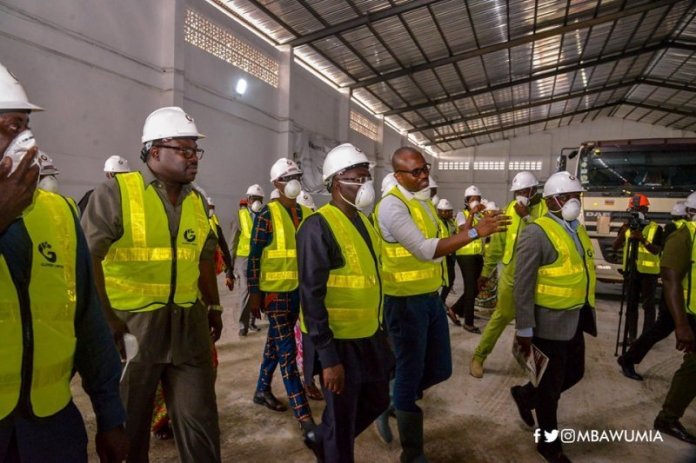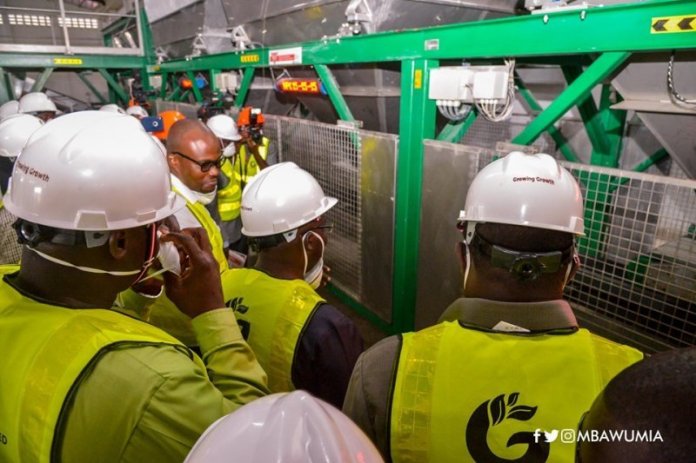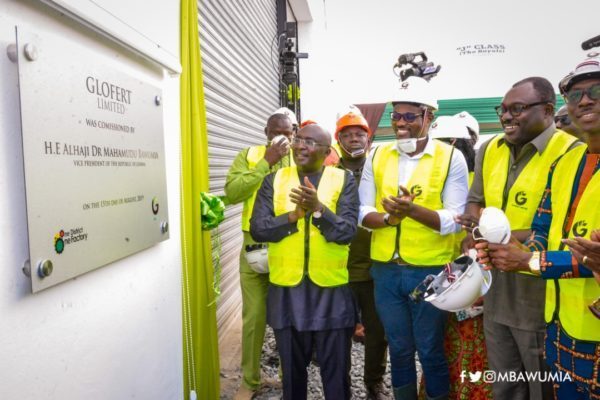Bawumia commissions Ghana’s largest fertiliser plant; urges Cocobod, Agric Ministry to patronise products
Vice President of the Republic, Dr. Mahamudu Bawumia has commissioned Ghana’s largest fertilizer factory at Asuboe in the Ayensuano District in the Eastern Region.
With a production capacity of over 800,000 metric tonnes per year, the Glofert Fertilizer Factory, a wholly-owned Ghanaian company, will be the first fertilizer production plant located outside the Tema Industrial enclave.
The factory will produce all kinds of fertilizers notably “Urea-Ammonium Sulphate”, as well as “NPKs” which are widely used by farmers in Ghana and across the continent of Africa.
Speaking at the commissioning, the Vice President expressed his excitement at the initiative by Glofert.
He said, “There is something special about today. Today we are adding one more major step towards achieving the President’s vision of building a Ghana Beyond Aid; because one of the pathways to achieving this vision is through agricultural transformation — making farming attractive, increasing farmers’ productivity, increasing their income and making it possible for agriculture to support industrialization.”

He noted “The project would create more jobs and the production of increased crop yields for Ghanaian farmers.
Dr Bawumia added “The Government of H.E Nana Addo Dankwa Akufo-Addo has been very keen about delivering on its promise to create a viable, self-sustaining economy. One of the means by which this can be achieved is through modern industrialization and to reduce our dependence on the outside world through imports to produce our own food, and this would largely be done through the One District One Factory Initiative.”
He disclosed that government has recently obtained parliamentary approval for tax incentives framework covering various tax exemptions for companies seeking to operate under the 1D1F programme, including five years tax holiday; waiver from import duties and taxes on equipment, machinery and parts; waiver from payment of duties and levies on raw materials; and a waiver from the payment of withholding taxes.

He urged the Ministry of Food and Agriculture, Cocobod and other stakeholders to now buy from domestic sources and not waste valuable foreign exchange on imports of fertilizer going forward.



